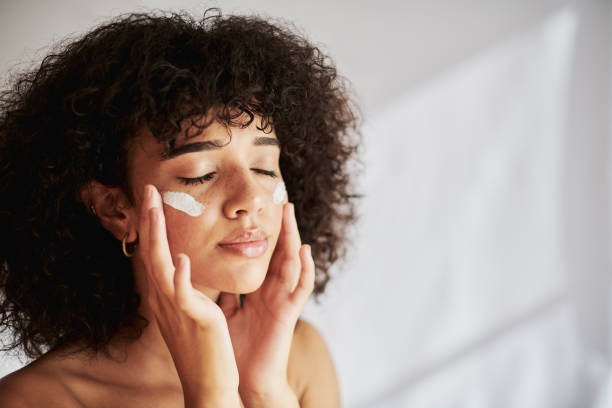Anti-aging care for mature skin: how to look younger naturally
Mature skin requires thoughtful care that addresses natural changes like reduced collagen production, decreased elasticity, and increased dryness. Understanding how to support your skin through these transitions can help maintain a healthy, vibrant appearance. Natural approaches to skincare focus on nourishing ingredients, consistent routines, and lifestyle choices that work with your skin rather than against it.

As skin matures, it undergoes significant changes that affect texture, tone, and resilience. The natural aging process slows down cell turnover, reduces moisture retention, and diminishes the skin’s ability to repair itself. These changes are entirely normal and can be managed effectively with the right approach. Focusing on natural methods means selecting ingredients that support skin health, maintaining protective habits, and understanding what your specific skin type needs at this stage of life.
How to choose the right anti-aging ingredients for each skin type
Selecting appropriate ingredients depends largely on your skin type and specific concerns. For dry mature skin, look for hydrating components like hyaluronic acid, which holds moisture, and ceramides that strengthen the skin barrier. Oily mature skin benefits from lightweight antioxidants such as niacinamide, which helps regulate oil production while providing anti-aging benefits. Combination skin types should focus on balanced formulations that address multiple concerns without overwhelming any particular area.
Sensitive mature skin requires gentle yet effective ingredients. Peptides support collagen production without irritation, while antioxidants like vitamin E protect against environmental damage. Retinol alternatives such as bakuchiol offer similar benefits with less potential for sensitivity. Understanding your skin’s unique needs helps you build a routine that delivers results without causing discomfort or adverse reactions.
Anti-Aging Skincare for mature skin in 2025
Current skincare approaches emphasize science-backed ingredients combined with holistic wellness practices. Retinoids remain a cornerstone for addressing fine lines and improving skin texture, though newer formulations offer gentler delivery systems. Vitamin C serums continue to be valuable for brightening and protecting against free radical damage. Alpha hydroxy acids like glycolic and lactic acid help with exfoliation, revealing fresher skin beneath.
Peptide technology has advanced significantly, with specific peptide complexes targeting different aspects of skin aging. Growth factors derived from plant sources offer regenerative benefits, while probiotics and prebiotics support the skin microbiome. Sunscreen remains the single most important protective measure, with mineral formulations providing broad-spectrum coverage without chemical filters that may irritate sensitive skin.
Anti-Aging options
Beyond topical skincare, several natural approaches support skin health from within and without. Facial massage techniques improve circulation and lymphatic drainage, reducing puffiness and promoting a healthy glow. Gua sha and jade rolling tools have gained popularity for their ability to enhance product absorption while providing gentle stimulation to facial tissues.
Diet plays a crucial role in skin appearance. Foods rich in omega-3 fatty acids, antioxidants, and vitamins support collagen production and protect against oxidative stress. Adequate hydration maintains skin plumpness, while quality sleep allows for cellular repair. Stress management through meditation, yoga, or other relaxation practices reduces cortisol levels that can accelerate visible aging signs.
Recommended Anti-Aging Skincare Products For Mature Skin In 2025
When building a routine, consider products that work synergistically to address multiple concerns. Morning routines should include gentle cleansing, antioxidant serums, moisturizer, and sunscreen. Evening routines can incorporate more active ingredients like retinoids or exfoliating acids, followed by richer moisturizers or overnight treatments.
Eye creams formulated specifically for the delicate eye area help address fine lines, dark circles, and puffiness. Neck and décolletage products extend care beyond the face, as these areas show aging signs prominently. Weekly treatments like masks or exfoliating treatments provide deeper benefits when used consistently.
| Product Category | Key Ingredients | Typical Price Range |
|---|---|---|
| Retinol Serum | Retinol, Peptides | $25 - $150 |
| Vitamin C Serum | L-Ascorbic Acid, Ferulic Acid | $20 - $180 |
| Hyaluronic Moisturizer | Hyaluronic Acid, Ceramides | $15 - $120 |
| Mineral Sunscreen SPF 50 | Zinc Oxide, Titanium Dioxide | $12 - $60 |
| Peptide Eye Cream | Peptides, Caffeine | $25 - $140 |
| AHA/BHA Exfoliant | Glycolic Acid, Salicylic Acid | $18 - $90 |
Prices, rates, or cost estimates mentioned in this article are based on the latest available information but may change over time. Independent research is advised before making financial decisions.
Consistency proves more valuable than expensive products or complicated routines. Starting with basic, well-formulated products and gradually introducing active ingredients allows your skin to adjust while minimizing potential irritation. Patch testing new products helps identify any sensitivities before full application.
Building a sustainable routine
A successful routine balances effectiveness with practicality. Choose products you enjoy using and can afford to repurchase regularly. Simplicity often yields better results than elaborate multi-step processes that become difficult to maintain. Focus on the fundamentals: cleansing, treating specific concerns, moisturizing, and protecting.
Monitor how your skin responds and adjust accordingly. Seasonal changes may require modifications to your routine, with richer products in winter and lighter formulations in summer. Regular evaluation ensures your routine continues meeting your skin’s evolving needs.
This article is for informational purposes only and should not be considered medical advice. Please consult a qualified healthcare professional for personalized guidance and treatment.
Conclusion
Caring for mature skin naturally involves understanding its unique needs and responding with appropriate ingredients and practices. By selecting products suited to your skin type, maintaining consistent routines, and supporting skin health through lifestyle choices, you can promote a healthy, vibrant appearance. The combination of quality topical products, protective habits, and overall wellness creates the foundation for skin that looks and feels its best at any age.




